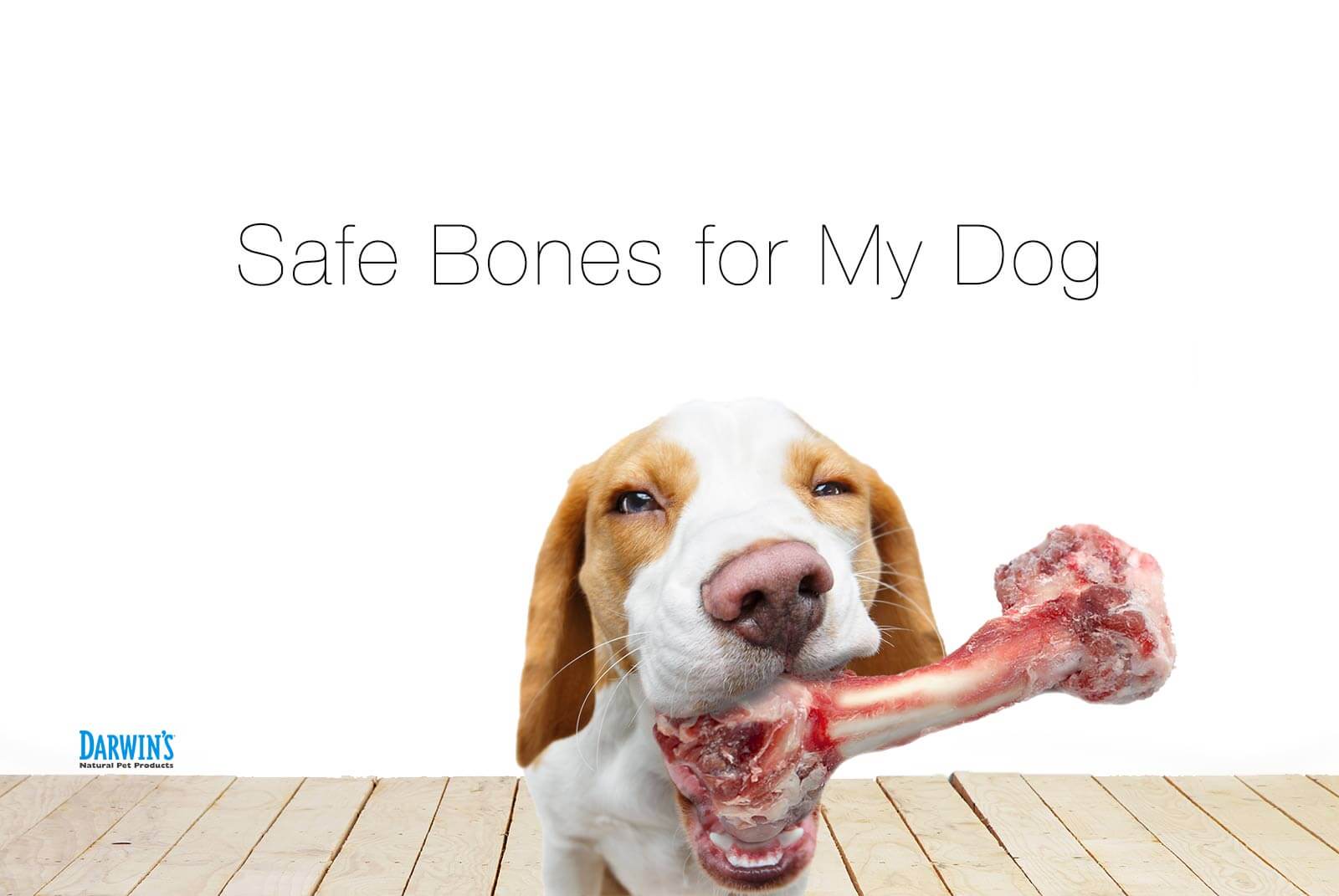Safe Bones for Dogs
6/11/16

Are there such things as safe bones for my dogs?
There is a reason dogs and bones is such a cliché – Dogs need bones. However, it’s not as simple as just “throwing your dog a bone”. Here is what you can do to keep them safe.
Dear Ask Darwin’s,
I would love to give my dogs bones. I have two big dogs and one small one. I have heard they are great for the teeth but would like to know more about it. I’ve heard bones can be dangerous. And, what about raw bones? Are they better than cooked ones? My brother cooks the bones he gets from the store. Is that safer when it comes to bacteria? Thank you, Melissa, CA.
Dear Melissa,
There is a reason dogs and bones is such a cliché – Dogs do need bones. However, it’s not as simple as just “throwing your dog a bone”. There are several different kinds of bones each serving up an important benefit. (Note: I will address raw vs. cooked or processed a few lines below).
Most notable bones that are safe for dogs –
- Editable: Meaning – the dog can eat the whole bone. There are also trace minerals in healthy bones that are important to their balanced nutrition often unavailable in their diets.
- Raw Meaty Bones: Meaning – they are better than soft chews, toys, or crunchy morsels; which unlike promotional campaigns state, are not good for their teeth. These dry cookie-like products get caught in the gums – actually causing tarter. It’s a bit like brushing our teeth with pretzels. Raw bones provide scraping action that other animals get naturally in the wild. I like to refer to real raw meaty bones as nature’s toothbrush.
- Recreational: Meaning – Keeping your big and little rascals busy, busy, busy. This is especially beneficial if your dogs don’t chase balls, herd sheep or wrestle with other dogs. Chomping on a bone engages their brains. Choosing the correct bones is great for your dogs’ mental stimulation and your mental health.
As with anything you give your best friends there are rules.
- Employ safe and healthy practices.It’s always (especially any raw meats) a good idea.
- Tip for your brother – do not give your dogs cooked bones. When I was kid my mother always warned me not to give the dog bones – especially poultry. That’s because we cooked them. Cooking bones makes them brittle which causes splinters. This, of course could lead to internal injuries and even surgery.
- Make sure the bones are size appropriate for your dogs. If the bones are too small they could be gulped or swallowed whole and may cause choking. If you are concerned about this, watch your dogs carefully as they chomp on their new favorite treat.
*ALL PORK BONES COOKED OR RAW* – It’s not an old wives’ tale. Pork can still carry the high risk of bacteria (trichinosis).
When to throw bone away.
This one is not always considered. If the bone is not the (completely) edible kind, you need to toss it when all the marrow and/or meat is gone. The bone goes from being great for their teeth or actually bad or harmful for their teeth. The bone gets hard, like stone. I know some owners like to wash them then fill with peanut butter or something yummy. Wrong. Not only does this allow your dogs to continue to chew on a now rock hard surface, it could invite bacterial interaction.
Supervision is key.
Which leads me to a final note about supervision. I know you know your dogs. However, nothing brings out competition or aggression more than a yummy bone. Even among siblings and that includes the human kind.
Hope This helped,
Thanks
Jeanne
What are your thoughts on raw bones for dogs?

I openly believe in all things “green” (except teeth). I love crafting words that make people think, painting with watercolors, amazing individuals who really are working to cure breast cancer and, of course, sushi. I’m the mother of two amazing canines and am passionate (and quite knowledgeable) about dog nutrition. And, in spite of Lucy Van Pelt’s objections, I let my dogs kiss me on the mouth. To see all my watercolor gallery of my favorite furry faces check out Artisan Tails.



